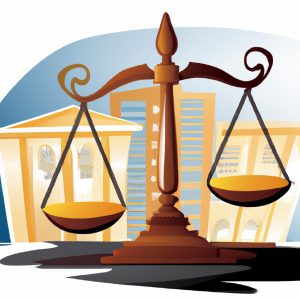Probate a will – a phrase often heard but not always understood. As seasoned practitioners in estate planning at Morgan Legal Group based in the vibrant heart of New York City, we frequently encounter clients seeking clarity on the intricate process of probating a will. In this article, we delve into the nuances of what this legal term truly signifies, shedding light on the significance and procedures involved in the probate process. Join us as we unravel the complexities of probate, demystifying this vital aspect of safeguarding one’s legacy.
Understanding the Probate Process for a Last Will and Testament
When a person passes away, their Last Will and Testament typically goes through a legal process known as probate. Probate is the court-supervised process of authenticating a deceased person’s will, distributing their assets, and settling any outstanding debts. It ensures that the deceased person’s wishes are carried out according to the law.
During the probate process, the following steps are typically taken:
- Submitting the will to the court for validation
- Notifying beneficiaries and creditors
- Inventorying and appraising assets
- Paying debts and taxes
- Distributing assets to beneficiaries
| Benefit | Allows for the legal transfer of assets from the deceased to their heirs |
| Challenge | The probate process can be time-consuming and expensive |
Key Factors to Consider When Probating a Will
When probating a will, there are several key factors that must be carefully considered to ensure a smooth and efficient process. One important factor to keep in mind is the validity of the will itself. It is crucial to verify that the will was properly executed according to state laws, including being signed by the testator and witnessed by competent individuals.
Another important factor to consider is the appointment of an executor. The executor is responsible for managing the estate, paying off debts, and distributing assets to beneficiaries. It is essential to choose someone who is trustworthy, organized, and capable of handling the responsibilities that come with being an executor. Communication with beneficiaries is also key, as keeping them informed throughout the probate process can help prevent disputes and ensure a successful outcome.
Navigating the Complexities of Probate Proceedings
Probate proceedings can often be a confusing and overwhelming process for those who are unfamiliar with the legal system. When a person passes away, their assets and estate must go through the probate process in order to be distributed to their heirs. Probate essentially means proving the validity of a will and carrying out the wishes of the deceased individual.
During the probate process, the court will oversee the distribution of assets and ensure that any debts and taxes are paid off. This can involve a number of complex legal procedures, including locating beneficiaries, valuing assets, paying off creditors, and interpreting the terms of a will. It is important to seek the guidance of an experienced probate attorney to help navigate through these complexities and ensure that the probate process goes as smoothly as possible.
Expert Recommendations for Efficiently Managing Probate Matters
Probate is the legal process of administering a deceased person’s estate. This includes identifying and gathering the deceased person’s assets, paying off any outstanding debts, and distributing the remaining assets to the beneficiaries named in the will. It is a necessary step to ensure that the deceased person’s wishes are carried out and their assets are distributed in accordance with the law.
When it comes to probating a will, it is crucial to consult with a knowledgeable estate planning attorney who can guide you through the process. At Morgan Legal Group, our team of experienced probate attorneys can offer . We can assist you with navigating the complex legal requirements, resolving any disputes that may arise, and ensuring that the probate process is completed in a timely and cost-effective manner. Let us help you navigate the probate process and ensure that your loved one’s final wishes are carried out with professionalism and compassion.
Q&A
Q: What does it mean to probate a will?
A: Probating a will is the legal process of authenticating a deceased person’s will and executing their final wishes as outlined in the document.
Q: Why is probate necessary?
A: Probate is necessary to ensure that the deceased person’s assets are distributed according to their wishes and to settle any debts or taxes owed by the estate.
Q: How long does the probate process typically take?
A: The length of the probate process can vary depending on the complexity of the estate and any potential legal challenges. However, it can take anywhere from several months to a few years.
Q: What happens during the probate process?
A: During probate, the court will verify the validity of the will, appoint an executor to oversee the distribution of assets, settle any outstanding debts or taxes, and distribute the remaining assets to the beneficiaries.
Q: Are there any alternatives to probating a will?
A: In some cases, assets can be transferred outside of probate through methods such as joint ownership, beneficiary designations, or living trusts. These alternatives can help expedite the distribution of assets and avoid the probate process.
Q: How much does probate typically cost?
A: The cost of probate can vary depending on the size of the estate, the complexity of the assets, and any potential legal challenges. Generally, probate fees can range from a few thousand dollars to tens of thousands of dollars.
Q: Can a will be contested during probate?
A: Yes, a will can be contested during probate if there are concerns about its validity or if potential beneficiaries believe they have been unfairly excluded. Contesting a will can lead to delays and additional legal expenses.
Closing Remarks
In conclusion, understanding the process of probate can help provide clarity and peace of mind during what can often be a difficult time. By knowing what probate a will means and the steps involved, you can better prepare yourself and your loved ones for the future. Remember, seeking professional guidance from a qualified estate planning attorney can be invaluable in navigating the complexities of probate. With the right information and support, you can ensure that your final wishes are carried out smoothly and efficiently. Thank you for taking the time to learn more about probate, and we wish you all the best in your estate planning journey.











